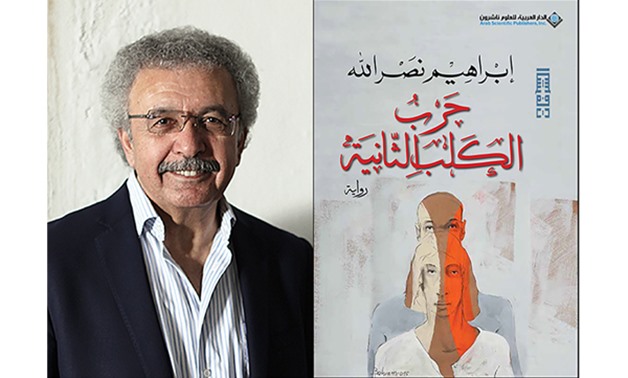
“The Second War of the Dog” written by Ibrahim Nasrallah-Official website of International Prize for Arabic Fiction (IPAF)
CAIRO – 25 April 2018: Palestinian-Jordanian writer Ibrahim Nasrallah won the 11th International Prize for Arabic Fiction (IPAF) on Tuesday, along with $50,000, for his novel “The Second War of the Dog”.
During a ceremony held in Abu Dhabi, “The Second War of the Dog” was chosen by the judges of IPAF, the most prestigious annual Arab award for novel-writing, as the best work of fiction published between July 2016 and June 2017. Nasrallah was also awarded $50,000, in addition to the translation of his novel into English.
The novel beat out five other shortlisted novels from Iraq, Syria, Saudi Arabia, Sudan and Palestine, which were also honored during the ceremony, each receiving $10,000.
“The Second War of the Dog” revolves around the main character, Rashid, who changes throughout the novel from an opponent of the regime to a dangerous extremist. Through his novel, Nasrallah highlights the human capacity for savagery.
Announcing the winner, Ibrahim Al-Saafin, chairman of the jury, said that this novel, published by Arab Scientific Publishers, could tackle political, humanitarian and social issues in societies through using unique techniques drawn from fantasy and science fiction.
“With humor and insight, it exposes the tendency towards brutality inherent in society, imagining a time where human and moral values have been discarded and anything is permissible, even the buying and selling of human souls,” Saafin said during the ceremony, according to the IPAF website.
In the same context, Nasrallah noted that the novel was written to make readers interact with its incidents by provoking, worrying them and even making them sometimes breathless.
“‘The Second War of the Dog’ is, in my opinion, a warning of what we could become in the future… The novel starts off at the moment of a loss of certainty; that loss of trust in those whom you interact closely with – that neighbor, brother, father or whoever it may be,” he noted.
Born in 1954 to Palestinian parents who were uprooted from their land in 1948, he spent his whole childhood in the Alwehdat Palestinian Refugee Camp in Amman, Jordan. He worked as a journalist, and then became a writer and acted as a mentor to emerging writers at IPAF’s annual writers’ workshop in 2014 and 2016.
Four of his novels and a volume of his poetry were translated into English, including “Time of White Horses”, which was shortlisted for the International Prize for Arabic Fiction in 2009, and “Lanterns of the King of Galilee”.


Comments
Leave a Comment